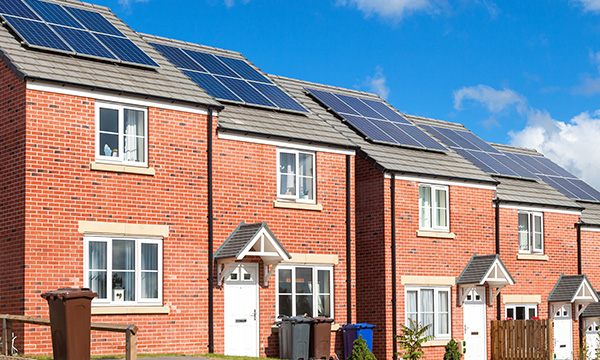10 May 2024
6 Facts about Retrofit you may not know
The South West Procurement Alliance (SWPA) and the Green Accord have teamed up to bring you 6 interesting facts about retrofit, as its popularity and relevance begins to increase positively even more in the construction industry and its supply chains. In the Autumn of 2024, SWPA will launch a new framework, a Retrofit and Decarbonisation (N9) Framework, which will deliver sustainable and energy efficient solutions to the public sector. The Green Accord specialises in offering an environmental performance accreditation to suppliers and SMEs, through guidance and clarification, in regard to greenhouse gas emission reporting, new technologies, energy saving advice, and climate change awareness training.
- Do you know what retrofit means? Retrofit refers to any improvement works on buildings which make them more energy efficient, i.e., easier to heat and able to retain heat for longer, and often replacing fossil fuels with renewable energy. This can include wall and loft insulation, draught-proofing, upgrading windows to double or triple glazing, and replacing heating systems with low or zero carbon technologies.
- Retrofit will help reduce a tenant’s/homeowner’s energy usage, utilising more energy efficient processes and utilities in the home, such as heat pumps and solar panels. Retrofitted homes are more resilient to energy price increases as they can generate their own energy and have lower energy demand.
- Retrofitting has many other social benefits. The work involved increases job opportunities for skilled work in areas such as heating engineers, glazers, and insulation specialists. By creating warmer, healthier homes, the physical and mental wellbeing of occupants is improved, resulting in less pressure on healthcare services.
- There are UK Government Schemes put in place to support homeowners in their own retrofit solutions. A good example of this is the Boiler Upgrade Scheme (BUS), which supports the decarbonisation of homes and small non-domestic buildings in England and Wales. The scheme provides upfront capital grants of up to £7,500 to encourage property owners to replace existing fossil fuel heating with more efficient, low carbon heating systems including heat pumps and biomass boilers. Use the Find a grant service to search other government grants and take a look at the other options out there!
- If you’re aware of the UK’s net zero aspirations for the future, you’ll know that as part of the Clean Growth Strategy, first published in October 2017, all fuel poor homes must be brought up to an EPC rating of C by 2030 and retrofit will be the viable solution to this.
- What are the barriers to retrofit? The issues the industry is unfortunately coming up against at the moment is mostly financial constraints, skills shortages, and supply chain issues, which we hope, through industry collaboration, we can change for the better.


